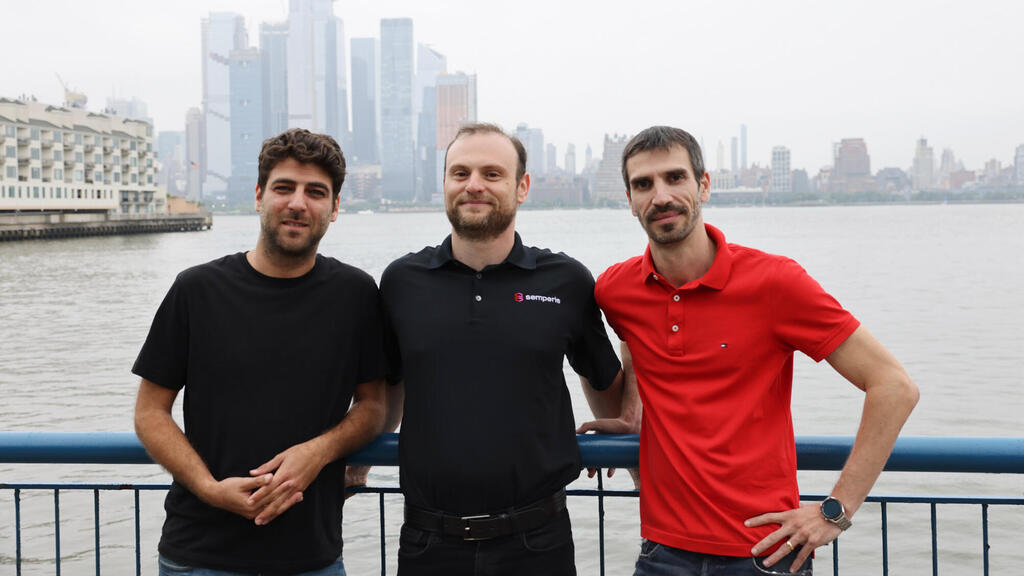
Cyber propels Israeli startup funding, but is overdependence a risk?
According to Startup Nation Central data, companies in Israel raised $5.1 billion in the first six months of the year, half of which came courtesy of cybersecurity companies. "Overdependence on cyber in the long term may come at the expense of other significant trends and opportunities for the ecosystem," said SNC CEO Avi Hasson.
In the first half of 2024, there was a 31% jump in capital raising by start-up companies in Israel, driven by large funding rounds in the cyber sector. The semi-annual report from Startup Nation Central (SNC) paints a fairly optimistic picture, highlighting that the cyber industry has mitigated Israeli risk and increased recruitment activity in Israel at a higher rate than globally.
Despite the war and anti-Semitic sentiments in the first half of 2024, investors did not shy away from Israel. Compared to the 31% growth in capital raising in Israel, the U.S. saw a 28% increase, while Europe and Asia recorded decreases of 6% and 18%, respectively. Israel's significant surge in the second quarter stood out on a global level, contrasting with more moderate trends elsewhere. The capital raised by high-tech companies in Israel amounted to $5.1 billion across 322 rounds, with SNC estimating that the final number could be even higher, potentially reaching $6.7 billion. In the second quarter alone, $3.3 billion was raised, compared to $1.8 billion in Q1. Fourteen major rounds, each over $100 million, contributed $2.8 billion (56%) of the total, masking weaknesses in early and mid-stage raisings.
The cyber sector further obscures these weaknesses, concentrating half of the recruitments in the first half and featuring prominently in the largest funding rounds. Wiz's record-breaking $1 billion round at a $12 billion valuation stood out, especially compared to what Google is now willing to pay for it. Additionally, mergers and acquisitions in the cyber field amounted to $1.5 billion across nine transactions, making up 35% of the exits in the first half of 2024.
The past few months highlight Israel's growing dependence on the cyber industry, contrasting with the U.S., where its weight has dropped to 13% of total high-tech investment activity. According to Avi Hasson, CEO of SNC, this trend is not necessarily positive, as the world has already moved on to AI, foodtech, and climate tech, while Israel remains focused on cyber. "Overdependence on cyber in the long term may come at the expense of other significant trends and opportunities for the ecosystem," Hasson told Calcalist.
SNC reports that the activity of foreign investors has not decreased and notes the opening of new representative offices by leading U.S. funds, Sequoia and Greylock. According to the report, investments were made by 217 active investors during the first half, with 54% being Israeli. However, global investors participated in rounds constituting 93% of all funding, a seven-year record. An interesting jump was also recorded in mergers and acquisitions, reaching $4.1 billion across a limited number of transactions. This marks a 70% increase compared to the second half of 2023 and a record since 2018 (excluding the second half of 2021). Two Israeli companies were sold in transactions exceeding $1 billion: WalkMe was acquired by SAP, and Resident was acquired by Ashley Home.
Related articles:
SNC provides an analysis of recruitment activity compared to the behavior of Israeli technology stocks on Nasdaq as a predictive factor for future investment activity. The organization has developed the Nasdaq Finder Index and compares it to the Nasdaq EW Index (Equal Weight) to neutralize the influence of the "Magnificent Seven," the tech giants mostly traded above a trillion dollars.
A comparison between the Israeli stock index and the weight-neutral Nasdaq index shows that with the introduction of judicial reform in January 2023, a negative gap began to form, deepening with the outbreak of the Gaza war. However, towards March 2024, the gaps narrowed, and Israeli stocks returned to performing similarly to the Nasdaq index. After S&P downgraded Israel's credit rating in April, the gap reopened. Today, this gap is smaller than at the end of 2023 but still noticeable compared to the beginning of 2024, when there were no differences between the performance of Israeli technology stocks and the rest of the Nasdaq.
"The huge fundraising, mega-rounds, and activity in cybersecurity have overshadowed regional risk in Israel. One would expect the 'Israeli factor' to have a stronger impact on Israeli high-tech activity, but the data shows otherwise," Hasson summarized. "While some investors are hesitant, others are increasing their investments in light of attractive valuations and unique technology. 'Star' startups in popular sectors continue to secure funding, while early-stage companies in less trendy fields face significant funding challenges. What is important now is to restore certainty to the Israeli economy, with the deal for the return of the hostages and regional normalization," Hasson added.
